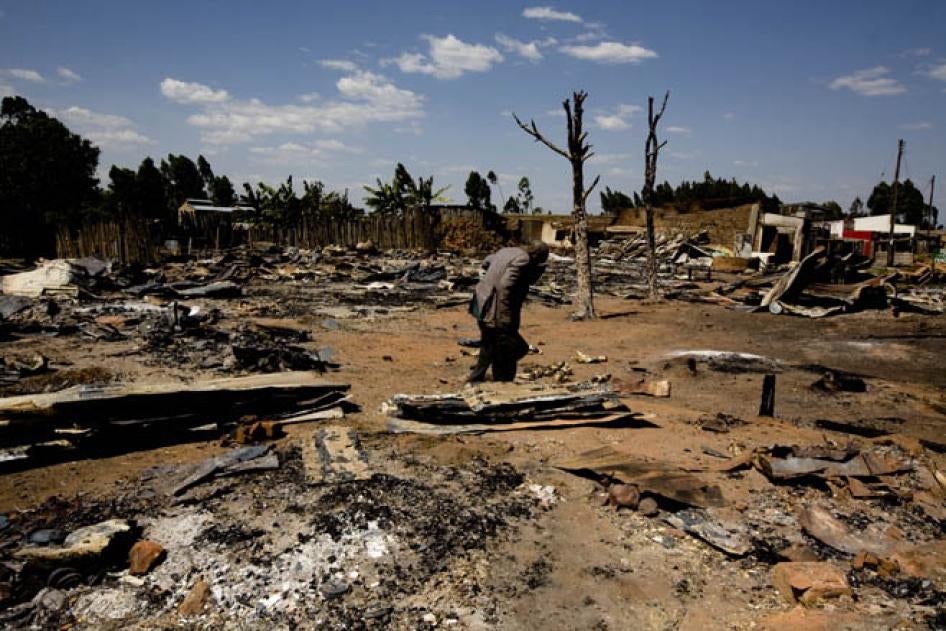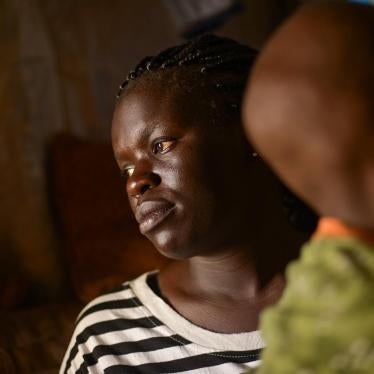Last week, appeals judges at the International Criminal Court (ICC) threw out prosecution evidence in the crimes against humanity case against Kenya’s deputy president, William Ruto, and his co-defendant, Joshua Arap Sang. The decision is significant, and the loss of prosecution evidence casts a shadow on the case’s future. But while the focus has been on Ruto’s co-called “big win,” the background to this decision should be a cautionary tale about the importance of protecting the ICC’s independence, a task its member countries seem at risk of failing.
The ICC’s Assembly of States Parties meets once a year to make decisions that should bolster the court’s work. Last November, however, the vast majority of the meetings were devoted to addressing demands from an out-sized Kenyan government delegation. The government wanted the Assembly to declare that a revised rule used by the Ruto trial court and adopted by the Assembly in 2013 was never intended to apply to the case, because it began before the rule was changed.
The use of the revised rule was the subject of last week’s appeals decision. The Ruto trial court had used the rule to admit evidence—essentially written statements or transcripts of statements recanted by four witnesses when they took the stand—because they found that the witnesses had been improperly influenced to recant, part of a systematic effort to interfere with witnesses in the case, they said. Statements from a fifth witness who disappeared altogether were also accepted. On appeal, however, the judges found that use of the evidence was incompatible with fair trial rights.
Whether the rule could be used in the Ruto case clearly was a legitimate question, as evidenced by the outcome on appeal. But it was squarely before the ICC judges at the time of the Assembly meeting. Putting this issue before the Assembly was a clear attempt by Kenya to apply political pressure on the judges’ decision-making, part and parcel of the government’s long-running campaign against the ICC.
That campaign, unfortunately, is not surprising. Until last year, Kenyan President Uhuru Kenyatta himself faced charges before the ICC. Neither his government nor the previous one have taken any real steps to bring to justice those responsible for atrocities committed during Kenya’s 2007-2008 post-election violence. As a court of last resort for the gravest international crimes, the ICC will inevitably rub up against powerful political figures who have everything to fear from accountability.
But what is perhaps most surprising is how anemic and cowed many other ICC members have been in the face of Kenyan pressure.
At the Assembly, member countries were dragged into days of closed-door negotiations over Kenya’s request. They agreed, in the end, to include a paragraph responding to Kenya’s request in the meeting’s report. The language is best described as a dodge on substance, but one that gave Kenya enough room to claim that the Assembly had backed their version of events regarding the rule’s history.
In their ruling last week, the appeals judges were not persuaded that member countries never intended for the rule to apply to pending cases, and based their decision, instead, on treaty law regarding the application of amended rules. They dismissed the language from November’s Assembly meeting as irrelevant. Nonetheless, the decision risks being seen as tainted by political pressure—and acquiescence.
Indeed, by wading into a matter pending before the court’s judges, the Assembly blurred an essential line between its legislative and administrative oversight responsibilities and the court’s judicial work. If the Assembly is turned into a forum to relitigate court decisions that governments don’t like, it adds to the court’s already difficult burden of ensuring its independence.
That independence is key to the court’s legitimacy, and its best defense in the highly politicized landscape in which it must work. Member states must know this, so how did they let this happen?
Some states may have thought they were doing the court a favor—diffuse the issue, and fend off the spectre of Kenya withdrawing and taking other key African members with it.
Constructive debate and discussion on contentious issues is one thing, and has proved helpful at past Assembly sessions. But concessions by the Assembly that undermine the court’s legitimacy aren’t worth the price. Regardless, a strategy of appeasement doesn’t seem to be working. This is the third year in a row that Kenya has sought to use the Assembly in its bid to delegitimize the ICC.
Strong, principled support for the court’s independence in the face of attacks will not solve all of the ICC’s difficulties—including that some of the world’s most powerful countries such as the United States, China and Russia have yet to join. Indeed, the ICC is moving into more and challenging landscapes, including a new investigation into crimes committed during the 2008 conflict between Russia and Georgia. But that support is crucial to the court’s ability to maintain its legitimacy as a judicial institution and to continue to progress in its prosecutions. Member states will need to become more adept at using their own political and diplomatic heft to stand on the side of victims.











